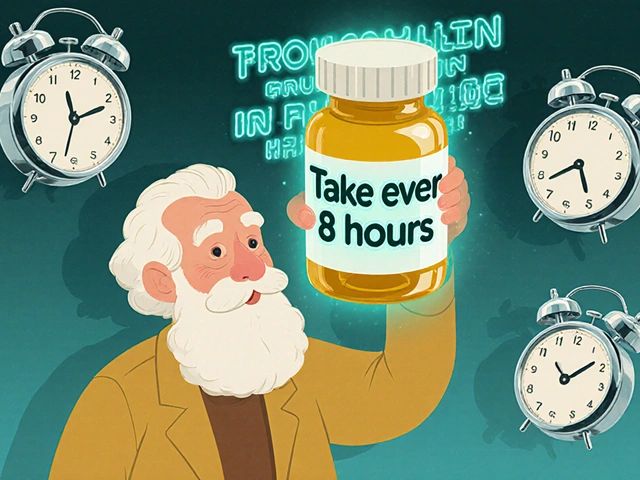Prevention: Smart Ways to Avoid Illness and Medication Risks
Small choices stop big problems. Whether you’re buying medicine online, picking an alternative drug, or protecting your skin from sun damage, a few practical steps cut your risk right away.
This tag collects how-to guides and real-world advice: safe online pharmacy checks, drug alternatives, condition prevention tips, and responsible use of supplements and essential oils. Read a quick checklist here to act now, then dive into the detailed articles that match your need.
Medication safety: buy smart, use smart
Want to buy a prescription online? First, check the pharmacy’s credentials. Look for a valid address, phone number, clear prescription rules, and trust seals or registration. If a site sells controlled meds without a prescription or offers prices that seem impossible, walk away.
When you get medication, confirm the drug name, dose, and expiration date. Keep a simple med list: drug, dose, why you take it, and known side effects. Share that list with any new provider. If a medication causes weird symptoms, stop and call your doctor—don’t guess.
Thinking about alternatives because of side effects or cost? Read practical comparisons before switching. Alternatives can work, but each comes with trade-offs. Use side-effect profiles and common drug interactions to weigh options, and ask your prescriber for a clear reason to change.
Everyday prevention tips that work
Infection prevention is basic but powerful: stay up to date with vaccines, wash hands well, and avoid close contact when you’re sick. For bladder or pelvic issues, follow your clinician’s bladder-training or pelvic-floor advice—small habit changes often help more than extra medicine.
For chronic disease prevention, focus on three simple habits: steady physical activity, balanced meals, and sleep. These lower risks for heart disease, type 2 diabetes, and many other problems. Don’t skip routine checks—blood pressure, lipids, and basic labs catch trouble early.
Skin protection matters. Actinic keratosis and other sun-related damage are much easier to prevent than to treat. Use sunscreen, wear a hat, and check your skin regularly. If you notice new or changing spots, book a dermatologist visit rather than waiting.
Supplements and essential oils can help, but treat them carefully. Choose reputable brands, follow dosing advice, and tell your doctor about everything you take. Some natural products interact with prescription meds or cause allergic reactions—so don’t mix them without checking.
Want a quick checklist? Verify pharmacy legitimacy, keep a current med list, follow simple hygiene and sun-safety habits, ask about safe drug alternatives, and consult a clinician before adding supplements. These steps prevent many common problems and make treatments safer.
Explore the articles under this tag to find step-by-step buying guides, side-effect breakdowns, and real user reviews. They’re written to help you act safely and confidently—no medical jargon, just useful advice you can use today.
 1 July 2023
1 July 2023
How to Choose the Best Underwear to Prevent Anal Itching
Choosing the right underwear can help prevent anal itching, an issue many people experience but rarely discuss. It's essential to opt for natural, breathable materials like cotton to minimize moisture and irritation. Avoid tight, restrictive underwear styles as they can cause friction, leading to discomfort. Always ensure your underwear is the right size to avoid unnecessary pressure. Lastly, maintain good hygiene and change your underwear daily, as cleanliness plays a significant role in preventing itchiness.
Latest Posts
-

Extra Super P-Force vs. Other ED & PE Medications: Detailed Comparison and Alternatives
-

Latex Allergy: Cross-Reactivity and Workplace Management
-

How to Use Label Information to Set Accurate Medication Reminders
-

CYP450 Enzyme Interactions: How Medications Compete for Metabolism
-

Mysimba vs Weight‑Loss Alternatives: Full 2025 Comparison

10